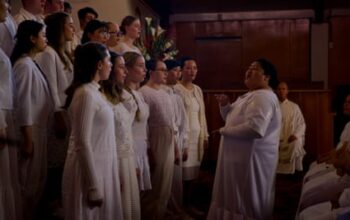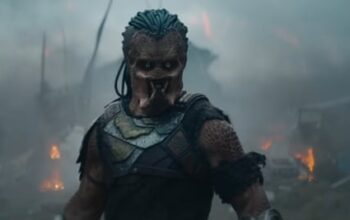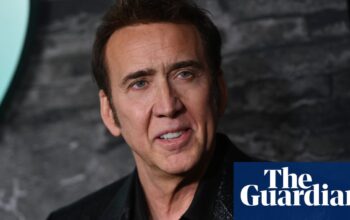They meet cute in a dance rehearsal studio. She’s a contemporary dancer teaching a class of deaf teenagers. He’s the sign language interpreter. When he walks into the room and takes off his shoes, they both look down at his odd socks and smile, something clicks. Like so much of the Lithuanian film Slow, the moment is romantic and feels true to life – as if someone is secretly filming real people with invisible cameras.
The pair start hanging out. Then one day, in her bedroom, just as you think this is it, he suddenly blurts out: “I’m asexual.” She splutters a giggle and asks what he means. “I’m not attracted to anyone sexually. Never was.”
Over Zoom from her flat in Vilnius, the film’s director Marija Kavtaradze tells me that she first got the idea for Slow years ago, reading an article about asexuality in a newspaper. It left her with questions. “I was thinking: how do you feel in the world, which is so sexualised, if you’re just not interested?” She stored the idea away while she wrote and directed her 2018 debut feature film Summer Survivors.
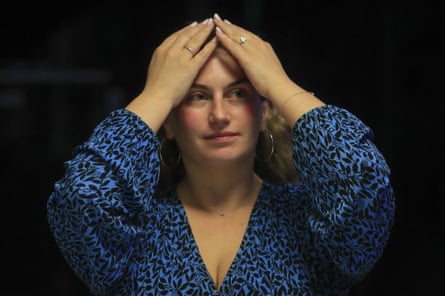
When she came back to it, she began by researching asexuality on YouTube: “People telling their own stories in their own voices, I value that.” Next, she posted a message on an asexuality network. The encouragement from people she got to know gave her the confidence to stick with it, Kavtaradze says. Did she question her right to tell the story as a straight woman? A nod. “I was a little bit afraid because I’m not part of the community. You have a lot of ethical questions. Can I write this?” In the end, she wonders if asexual people she’d got to know were often just happy to see their world represented on screen.
The asexual – or ace – community makes up around 1 to 2% of the population. But asexuality is so little discussed that it’s been called the “invisible orientation”. That lack of awareness and misconceptions about asexuality bubble up in the character of dancer Elena (played by real-life dancer Greta Grineviciute). When her new love interest Dovydas (Kestutis Cicenas) tells her he’s asexual her response is sceptical: “How come?” Dovydas shrugs an answer: “It’s just the way it is.” Elena’s assumption that there must be a reason for his asexuality is apparently fairly common – you just haven’t met the right person yet. Maybe you’ve been abused or are secretly gay?
The will-they/won’t in this relationship is not whether Elena and Dovydas will get together. But can their relationship survive without sexual intimacy? Dovydas is asexual but he is romantically attracted to Elena – he wants a relationship with her. Kavtaradze is at pains to stress that she’s telling just one story in her film. “It’s impossible to represent asexuality in general. It’s a huge spectrum. Every person is different. Every experience is different. So I’m very conscious about the fact that I’m only writing about one particular character.
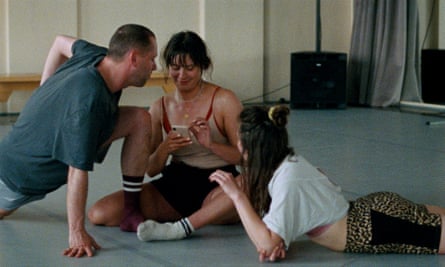
In the film, Elena has previously had a great sex life, enjoying plenty of no-strings sex. And the sex scenes in Slow feel like an honest portrayal of sex and pleasure, more real than we often see on screen. They back up my pet theory that I can often tell if sex in a film is directed by a woman. When I put this to Kavtaradze, she nods enthusiastically down her computer screen. “I say the same thing! It’s something to do with the way you see women I think. There are good sex scenes directed by men, for sure. But it’s often the cliches, you know, where you just see just parts of women’s bodies. Maybe it’s more realistic?”
Kavtaradze hired an intimacy coordinator for the sex scenes: “I was really lucky, because she is the first in the Baltic countries.” Before shooting, the coordinator spoke at length with the actors about their on-screen boundaries and where they felt comfortable being touched. The scenes were choreographed and blocked, and during filming the number of people on set was restricted. It turned the sex scenes into some of the easiest in the film to shoot says Kavardz “because they were so well prepared.” Afterwards the footage was treated as “special” and could only be accessed by Kavtaradze and her editor.
Kavtaradze is a romcom fan. She has a thing for 90s movies like Notting Hill and Green Card, and her first thought was to write the Slow as a romcom. “This always happens to me,” she says with a grin. “When I was making my first feature film, I also wanted to make a comedy. Then I show it to my sister and she cries.”
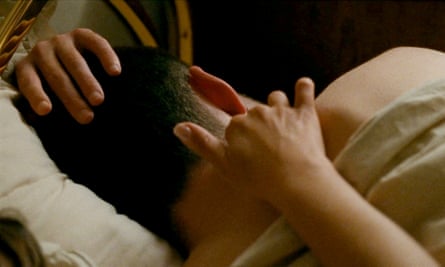
In the end, the film-making style of Slow owes something to Before Sunrise – it’s shot in that same natural style that looks so easy and unforced. Kavtaradze also went back to Sally Rooney’s Normal People – the book, not the BBC adaptation. “I liked that feeling it had, I wanted to put it into visuals, how to create intimacy.” Andrew Haigh’s gorgeous gay romance Weekend was a big influence too. “How can you make it emotional and natural when they’re just sitting on a sofa for three minutes,” she says laughing. “I want you to feel like you’re with them, not watching them. I want to take you into their room.”
Source: theguardian.com
